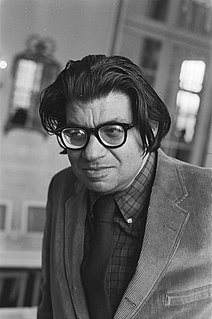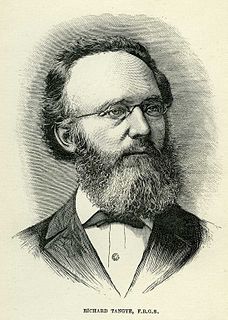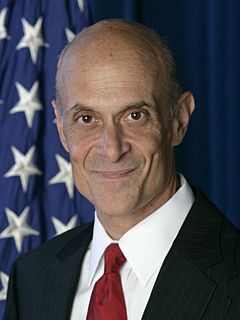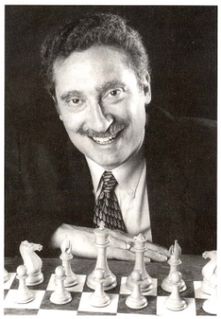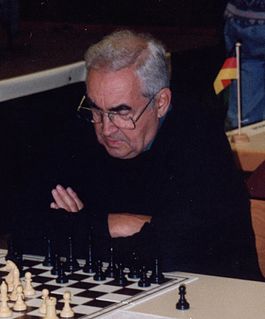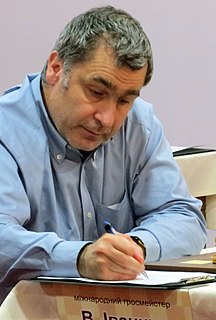A Quote by Alexander Alekhine
When asked, -How is that you pick better moves than your opponents?, I responded: I'm very glad you asked me that, because, as it happens, there is a very simple answer. I think up my own moves, and I make my opponent think up his
Related Quotes
An nice lady in the back...asked what I thought about how we begin to move forward. I think it is up to each individual, which then moves to your family, which moves to your community. Each person, in their own life, let your life be a light for peace, for justice, for all that is good. Just let it shine, let it shine, let it shine, let it shine.
I have a very dear friend, a great painter, called me up very upset, the work wasn’t going well… He asked me to come to his studio -- which I did -- I looked around at the work, dozens of sketches, drawings, large pictures, and I was very close to his work, intensely involved with his work, and he asked me, ‘What’s wrong?’ And I said, ‘Simple – it’s a loss of nerve.
I'm sometimes asked why it is that for 30 years we seem to have trouble in the United States enforcing the rules against illegal immigration, and I'll tell you what the answer is. The answer is that when the television cameras turn off and the spotlight moves to something else, there are a host of interest groups and advocacy groups who work very, very hard to make it difficult to enforce these rules. I'm not commenting adversely on their motivation, but I can tell you the effect of all of this is to wear down the ability of an agency to enforce the law.
...the story of a man who saw three fellows laying bricks at a new building:
He approached the first and asked, What are you doing?
Clearly irritated, the first man responded, What the heck do you think I'm doing? I'm laying these darn bricks!
He then walked over to the second bricklayer and asked the same question.
The second fellow responded, Oh, I'm making a living.
He approached the third bricklayer with the same question, What are you doing?
The third looked up, smiled and said, I'm building a cathedral.
At the end of the day, who feels better about how he's spent his last eight hours?
When Grand Masters play, they see the logic of their opponent's moves. One's moves may be so powerful that the other may not be able to stop him, but the plan behind the moves will be clear. Not so with Fischer. His moves did not make sense - at least to all the rest of us they didn't. We were playing chess, Fischer was playing something else, call it what you will. Naturally, there would come a time when we finally would understand what those moves had been about. But by then it was too late. We were dead.
Sometimes it happens that the computer's assessment is very abstract. It's correct, but it's not useful for a practical game. You have to prove the assessment with very strong moves and if you don't find all of these strong moves you may lose very quickly. For a computer this is not a problem, but for humans it is not so easy.
Life is very fleeting. It’s important to be gentle and optimistic. We look behind and think what we’ve done in this life has been good. It was simple; it was modest. Everyone creates their own story and moves on. That’s it. I don’t feel particularly important. What we create is not important. We’re very insignificant.


